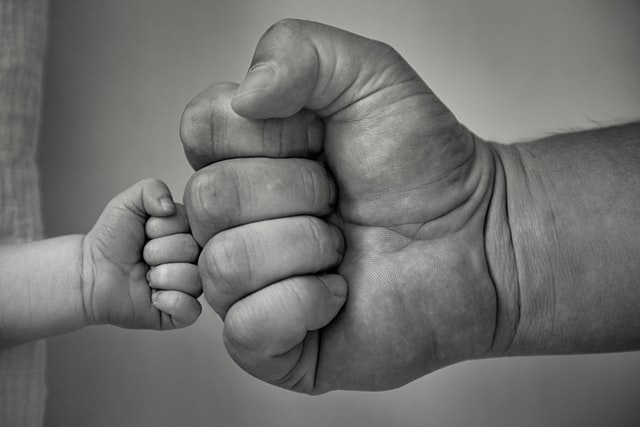
Samuel Phillips is a writer, graphic designer, photographer, songwriter, singer…
There is this Yoruba song I knew while growing up. Loosely translated it means, “the butterfly that tries to imitate the bird will fly until its wings tear.”
There is a lot to bring out of the words of that song, especially as it concerns how we have somehow created a narrative that tries to see Afrika from the eyes of the West and East and then how we try to make unhealthy comparisons between Afrikans themselves.
Now I am not saying that Afrika is the picture of a weak butterfly nor am I saying that the west is the bird. Not at all. For in the real sense of things, no one is better than the other and no one is also equal. People are just unique.
Most people have lived all their lives fighting and pushing to be like everyone else, except themselves. They struggle to keep the various public charades going on about how glorious and perfect they are, but break down when in their closets they look at the mirror of themselves and realize that they are, at best, deceiving themselves.
Sincerely, if you ask me, I will say it’s ok to sometimes measure how far you have come in life by taking a quick look at others. And even that should be for learning purposes and not for comparison.
Afrika has somehow found herself in the shadows of other continents and that, for too long.
I love the article by Lawrence Freeman about what’s wrong with America’s policy for Afrika. Lots of things to think about in the article, but I have a few question:
Why would America be interested in making policies that will liberate Afrika, when that same liberation will certainly put a stop to the stealing of Afrika’s wealth by the very same Americans who wanted the wealth for themselves? Why does Afrika, a continent of fifty five nations, depend on any policies from one nation called America to come and put her on the path of progress and prosperity? Will there ever be a time when Afrikans will stand tall enough to create their own reality without tagging along behind the west, or anyone else?
We teach our kids that to graduate from Harvard university is more honorable and worthy than to graduate from the university of Rwanda and then complain when they just can’t disconnect themselves from the tendency to think and behave as people who undermine their own continent. We simply have not given them a mirror to look at that reflects back to them who they are, so they take all their cues from tagging along behind others. And when they invent or create new things, they must bring it first to the table of the west for approval and then sell it to the highest bidder. It has been a loop of hopeless struggle to become like others but not one’s unique self.
There is this popular phrase I have heard people use over time. It says “Aluta Continua” which means the struggle continues. In as much as it sounds like a chant of solidarity, my question is, how long shall we keep struggling as Afrikans?
We struggle for even simple basic amenities in our communities. But success does not come from a compilation of struggles, it comes from the wise building of structures and systems based on principles that work. It comes from when the older generation, having done the initial struggle and having mastered how things work, create an enabling environment for the next generation, so they don’t have to come relive the struggles, but build success. We must put down our yokes of struggle and start to put on our thinking caps.
Take for instance, every now and then you see on television or on social media that a young talented Afrikan child has built some toy cars or toy earth moving vehicles. And then there is a call to support and train him to become a true engineer who will build the machines needed for the engineering needs of Afrika. A noble idea, if you ask me, but have you ever considered that, ten years ago, someone like him was also paraded on the street with similar skills and creations? What happened to that person? Probably never spoken of again after the street show, and thus could not get anywhere with his invention.
What about if we had accurately trained that first child ten years ago till he succeeded with his invention, would he not have come to understand how to work on talent until it became useful to the society and then be in the better position to now train the talented kid of today? Again, should it not have been a priority for Afrikan governments to create technical schools specifically for such creative and talented kids where they are trained to become real engineers and true entrepreneurs? Do they have to struggle for years bearing both the burden of the very talent bubbling in their minds and then the pain of trying to make something out of the talent?
We like to rejoice when a sudden breakthrough comes for one of our Afrikan children in their area of expertise. Especially when someone outside of Afrika finds them and invests in their talents. What about if we created the system that spots them right in their villages and then empowers them right there without ever subjecting them to the struggle of hustling? Is it not embarrassing that our talented children are only spotted by others in other continents?
Another thing is this, have you ever noticed that almost all such talented kids that are paraded on the media for creating things which are considered beyond their age and expertise, are from poor families living in poor neighborhoods and without the resources to take their skills and inventions to the next level? So, does that mean kids from rich homes with all resources available don’t have brains to create things while the poor kids from the poor homes have all the skills but no resources?
I think we are already failing in the struggle if the next generation has to come into the same struggle, complain like us, create no useful system that alleviates the struggle and then pass the baton again to the next generation of strugglers and talented poor kids.
If you ask a relatively successful businessman what his current dream is, he will say he wants to take his business to the next level. But there is no next level that is devoid of the next generation. Why is it that we don’t think of the next generation when we make our business plans? We must be trans-generational in our thinking. For the person that speaks of the next level is only speaking about how to make more money. More money is not the definition of the next level, creating an enabling environment for the next generation that won’t need to come and repeat the struggle, is.
Why is struggling and hustling synonymous with Afrikans, while ease and comfort is synonymous with the West or Europe. Why stick with hard work, hustling, struggling, which are almost all the time connected to poverty, when working smart, creating of enabling systems by the older generation for the younger generation should be embraced as an option?
Imagine what Afrika can achieve by doing that.
Subscribe now for updates from Msingi Afrika Magazine!
Receive notifications about new issues, products and offers.
What's Your Reaction?
 PIN IT
PIN ITSamuel Phillips is a writer, graphic designer, photographer, songwriter, singer and a lover of God. As an Afrikan content creator, he is passionate about creating a better image and positive narrative about Afrika and Afrikans. He is a true Afrikan who believes that the true potential of Afrika and Afrikans can manifest through God and accurate collaborations between Afrikans. Afrika is the land of kings, emperors, original wisdom, ancient civilizations, great men and women and not some road-side-aid-begging poor third world continent that the world finds joy in undermining.














